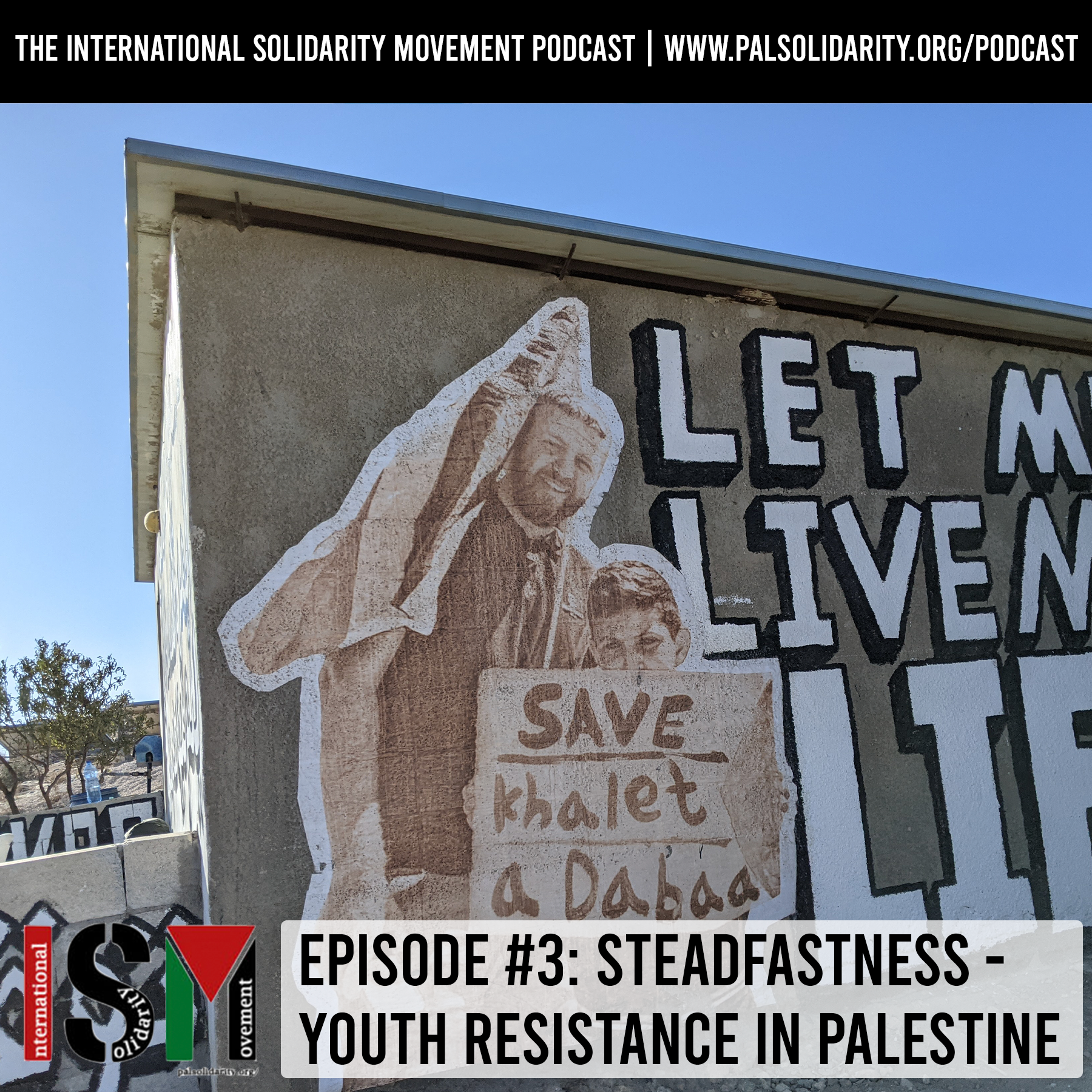Tag: Youth of Sumud
-
The International Solidarity Movement podcast episode three: Steadfastness – Youth Resistance in Palestine
In this third episode of the ISM podcast our guest is Sami Hurreini, who is a really inspiring youth organiser from At-Tuwani in the South Hebron Hills. He’s part of a group called Youth of Sumud. Sumud is an Arabic word meaning steadfastness, and its a central concept in the Palestinian popular resistance to the…

